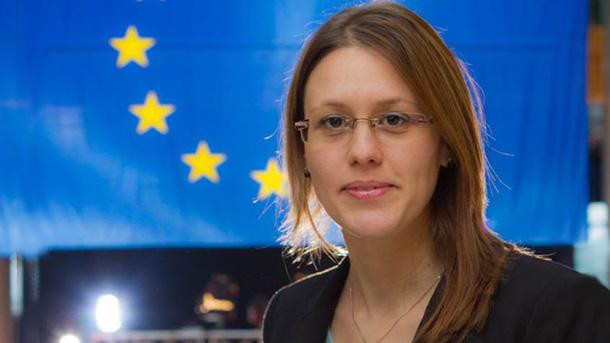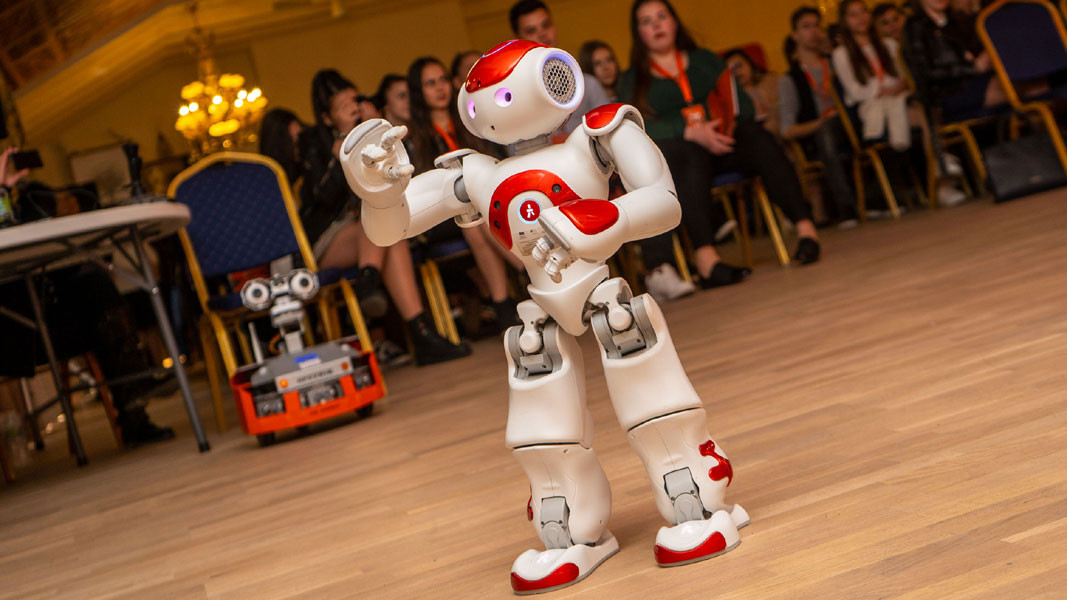Almost 200 Bulgarian children from North Macedonia, Moldova, Ukraine, Albania, Serbia, as well as the Western Rhodopes and the region of Tervel participate in the 24th edition of the Spring Seminar organized by the Bulgarian Memory Foundation, being held until April 5 in Kranevo, on the Black Sea coast. The motto is "Innovation, Progress and Digital World". The aim is for children to feel the pulse of modern times, and to acquire valuable knowledge in an interesting, provocative and interactive way.
 "We want the seminars help in forming strong European identity in participants and love for Bulgaria that these children already have. They would meet with their peers from different countries and from the northeastern and southwestern parts of Bulgaria," says Monika Panayotova, a member of the consultative council of the foundation and a former Deputy Minister in charge of the Bulgarian Presidency of the Council of the EU. “We also want to be as useful as possible in the educational and career orientation of young people, giving them the opportunity to get acquainted with professions and skills of the future that are linked to the digital transformation of society and economy."
"We want the seminars help in forming strong European identity in participants and love for Bulgaria that these children already have. They would meet with their peers from different countries and from the northeastern and southwestern parts of Bulgaria," says Monika Panayotova, a member of the consultative council of the foundation and a former Deputy Minister in charge of the Bulgarian Presidency of the Council of the EU. “We also want to be as useful as possible in the educational and career orientation of young people, giving them the opportunity to get acquainted with professions and skills of the future that are linked to the digital transformation of society and economy."
Seminars are a valuable platform that allows Bulgarian children from communities abroad to get to know opportunities provided by the EU, Monika Panayotova adds:
"In addition to technology, children are also interested in the EU and its institutions because they come from countries that are about to walk their path to European Membership."
The seminar also includes a host robot named Naum – one of the attractions of this year's edition.

"It was developed by young Bulgarian engineers and volunteers from ‘Robo League’. They have graduated in Bulgaria and are working here, which makes them an outstanding example to the participants in the seminar. The robot has humanoid design and can recreate movements of the participants in an interesting way. It represents a connection between the virtual and the real world, making young people participate actively in the seminar. During the forum, in addition to European topics, with the help of interesting lecturers, we will try to immerse them in the world of virtual reality, digital entrepreneurship, 3D programming and nanosatellites."
What is the aim of the Bulgarian Memory Foundation and why is the forum considered a bridge between cultures? More from Monika Panayotova:
"The aim of the foundation is integrating young people part of the traditional Bulgarian Diaspora. We show them opportunities for realizing their talents both in Bulgaria and in the EU. It is valuable that through interactive methods young people can acquire specific skills but also get in touch with professionals from various fields – NGOs, media, business, European institutions and others. So they can draw experience, ideas and inspiration from successful examples from Bulgarian civic society."
Bulgarians from communities abroad have a vision for Bulgaria and express their desire for education in this country:
"Participants in the seminar have very positive opinion about the program, the opportunities for self-expression, participation and teamwork with young people from different parts of the Old Continent, all speaking in Bulgarian – one of the official languages of the EU. Over the years about 80 percent of participants in the seminars have recognized Bulgaria and the EU as a whole as an appropriate educational destination. They talk about Bulgaria through the precious memories of their grandparents and parents. It is very nice to see through the eyes of young people who carry Bulgaria in their hearts and to hear their expectations of the future."
At the opening of the seminar in Kranevo, chairman of the foundation Dr. Milen Vrabevski, announced that in the future the seminars would also take place outside the Bulgarian borders.
English: Alexander Markov
Bulgaria's State Automobile Inspectorate (DAI) is the official body that deals with the control of heavy-duty traffic on the territory of the country, as part of the Executive Agency "Automobile Administration" (IAAA). Its work became the subject of..
With a concert by the Slavey Quartet created by folk singer Nadka Karadzhova and a conversation about the problems of our compatriots in the Western Outlands, the Cultural and Information Center of the Bulgarian Minority in..
Athens is under pressure to sell fighter jets that would be delivered to Ukraine Greece is reluctant to provide high-tech military equipment that could be used against Russia, reports BNR’s correspondent in Greece Katya Peeva...
Bulgaria's State Automobile Inspectorate (DAI) is the official body that deals with the control of heavy-duty traffic on the territory of the country, as..

+359 2 9336 661
